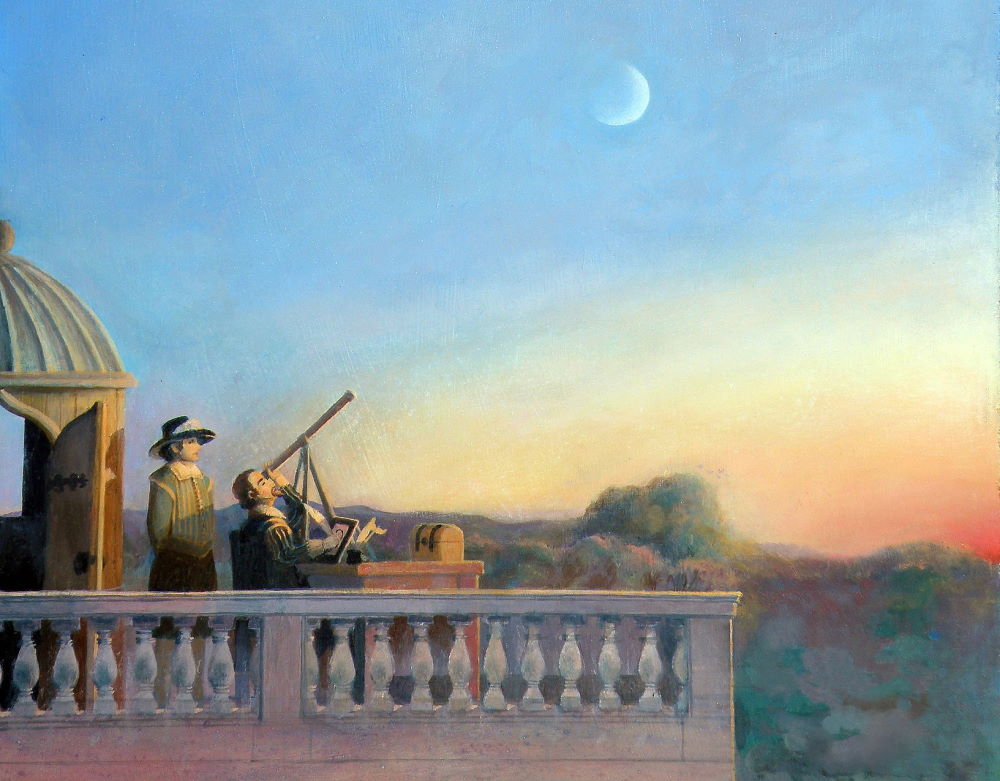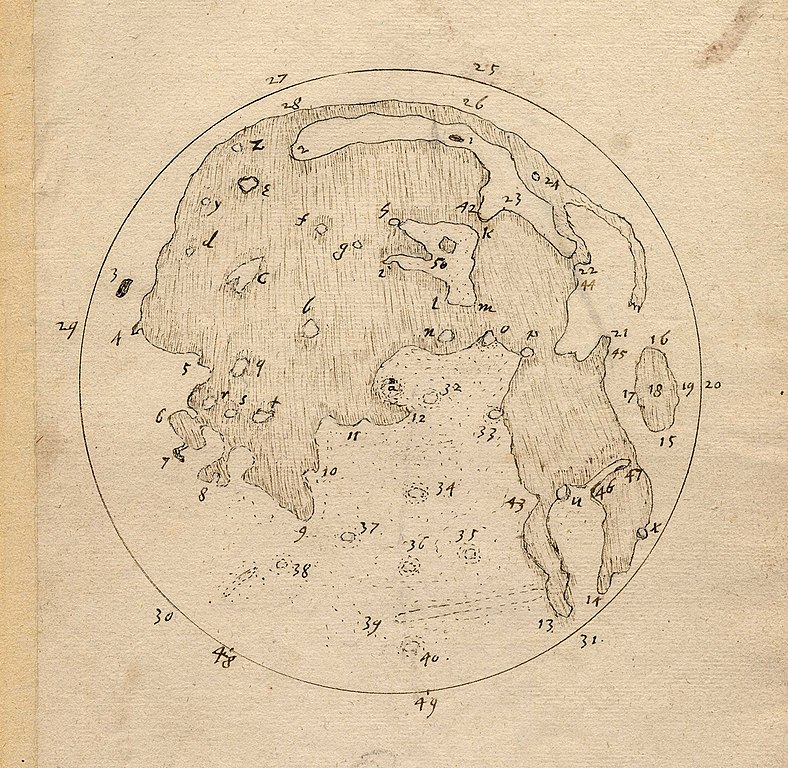Four hundred years ago, on July 2 1621, a remarkable Englishman named Thomas Harriot died in London.
Some scholars have called him the English Galileo and the greatest British mathematical scientist before Newton.
Yet Harriot died without publishing a single word of this extraordinary output.
Thomas Harriot observing the Moon through his telescope from the roof of Syon House.
Painting by Rita Greer.
What did Harriot discover?
But Harriot independently did both of these things.
(Half a century later, Isaac Newton developed the definitive laws of motion.)
As Schemmel pointed out, Harriot and his contemporary Galileo were heirs to essentially the same body of knowledge.
Its perhaps not so surprising, then, that they made some of the same breakthroughs.
Legend has it Galileo dropped balls from the Leaning Tower of Pisa to study how they fell.
This combination of experiment and mathematics is now the accepted way to derive a law of nature.
Quantifying observations means others can test the results, and use them to make useful predictions.
But they were among the most successful of the pre-Newtonian pioneers.
Harriots other adventures
If only Harriot had published!
Harriot was also busy dodging heretic hunters and sailing the high seas as Raleighs navigational advisor.
Harriots contribution to colonialism has justly attracted its share of criticism.
Harriot learned the local language, and enjoyed much about the year he spent living with the Algonquians.
What he loved doing most, though, was mathematics and physics.
Nor did he care about fame, despite being urged by friends to claim his priority.
After his death, well-meaning scholars carved up his manuscripts in an attempt to study and publish them.
In the process, however, all the papers disappeared, seemingly lost forever.
Most of the papers were then given to the British Museum.
They are now in the British Library, where I had the privilege of studying them.
(Theyre also availableonline.)
As for Harriot, no-one knows much about him as a person not even his birthday.
Four hundred years on, his mix of genius and dedication is something to honour.



